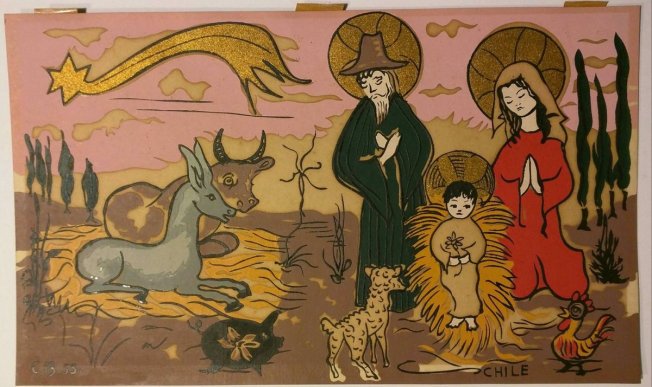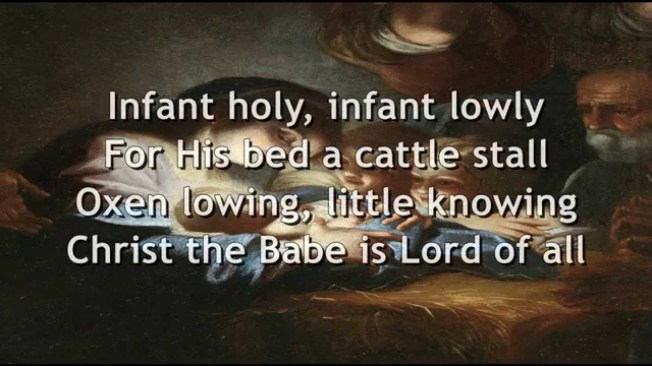“Searching for Jesus”

Luke 2:41-52 (2:51) – December 30, 2018
Have you ever lost a child? Or a grandchild? I have, briefly. What a nightmare for a parent or grandparent. I remember how worried I was, and how I called and called for my oldest daughter. That is the situation we see in our Gospel reading this morning from Luke 2. Can you imagine Mary and Joseph’s panic and fear when they suddenly realize their son had disappeared from their large group of relatives and friends from Nazareth?
I remember how frightened I was when I searched for my child, and I just searched for my four-year old daughter for five minutes in a department store. I cannot even imagine how shocked and terrified Mary and Joseph were, when they finally figured out that Jesus had not even started out with His family in the morning, leaving Jerusalem.
Let us consider what we know from the Gospels. We know a lot about the time right before and after Jesus was born. Luke tells us a lot, in the first and second chapters of his Gospel record. We can assume he interviewed Jesus’s mother Mary herself. (Otherwise, how on earth would he know certain intimate details about Mary’s pregnancy and birth?)
Also, the first chapter of the Gospel of Matthew lets us in on Joseph’s side of the birth narrative. We find out that Joseph also had a visit from an angel, to let him know the particulars about the Child his fiancée was carrying. Matthew’s Gospel also tells us of the visit from the wise men, or Magi, that we will hear about next week. But, what else do the Gospels tell about the child Jesus, or the teenager Jesus? Other than this narrative from Luke 2, absolutely nothing.
In such an age of constant, 24/7 news and endless information through the computer and other media such as we live in right now, this lack of biblical information might amaze us. However we might feel about it, this Gospel reading today is the only snapshot we get of Jesus between the time He was a toddler and the time of His baptism, at 30 years old. What can we learn from this narrative? Can we search out some message, some meaning for us today?
We begin with Mary and Joseph. As Luke relates, after searching throughout their caravan of relatives and friends on the way back from Jerusalem, after the Passover celebration, Mary and Joseph cannot find their son. So, they quickly return to the capital city, to Jerusalem, to do more searching.
The Gospel tells us they spent three days looking for Jesus. Not three hours, but three whole days. What a predicament! What an emotional impact this must have had on His parents. Jesus was twelve years old. I realize that we are talking about a different time and a different culture, but, still. Mary and Joseph must have been beyond frantic.
Have you ever been frustrated, or frantic beyond belief, and really wanted to have God step in and take charge? And, it seemed that God just did not show up? I remember searching for God several times in my twenties and thirties, when I was in several continuing predicaments. I couldn’t seem to find God, when I needed God the most. Several times, I distinctly remember searching for Jesus, even crying out to Him for help. And, I had difficulty finding Him.
Have you ever searched for Jesus, and He just could not be found? That was what happened to Mary and Joseph when they searched Jerusalem diligently for three whole days. No sign of Jesus.
Let us continue with today’s reading from Luke, starting at verse 46: “46 After three days they found him in the temple courts, sitting among the teachers, listening to them and asking them questions. 47 Everyone who heard him was amazed at his understanding and his answers.” After searching in all different places, Mary and Joseph finally track Jesus down. They find Him at the Temple, talking with the most knowledgeable teachers of the Bible, and asking them questions. I suspect Jesus also was trained well in the traditions and understanding of the Hebrew Scriptures, so He probably was involved in high-level discussion, too.
When Mary and Joseph finally find their son, Mary takes the lead: “48 When his parents saw him, they were astonished. His mother said to him, “Son, why have you treated us like this? Your father and I have been anxiously searching for you.” As we can see, Mary and Joseph love Jesus very much, and are very concerned and fearful about Him. “Yes, it’s great that he is alive, and yes, it’s good to see him sitting with teachers and discussing religious matters, but why should they reward disobedience to their parental authority?” [1]
Let’s look at this situation from Jesus’s point of view. He was obviously learning and stretching his quickly-maturing mind. Some theologians and bible teachers do not care for this, because they want Jesus to have all the answers—even at twelve years old. “For some, the question is, “Didn’t he understand his own divinity?” For others, the question is, “If he understands his divinity, how authentic was his experience as a human being?” The text reads, “And Jesus increased in wisdom and in years, and in divine and human favor’” Dr. Irving Cotto says about Jesus: “so, we find him learning the ropes of his faith, and perhaps deepening his understanding of who is and what he is called to do as the Messiah.” [2]
As we puzzle through this Gospel reading this morning, I wonder. Was the young Jesus searching out parts of His own overarching story? We can see Him having unusual depth and insight for one just on the brink of teenager-hood. Were we—from our vantage point and viewpoint of almost 2000 years, also searching for Jesus? Wondering where and when He would show up? When Jesus is found in the Temple, are we surprised, too?
Jesus has the last word in today’s reading. “49 “Why were you searching for me?” he asked. “Didn’t you know I had to be in my Father’s house?”[a] 50 But they did not understand what he was saying to them. 51 Then he went down to Nazareth with them and was obedient to them. But his mother treasured all these things in her heart.”
“Perhaps Mary, to her credit, treasures the story because she does not yet understand. From Gabriel’s initial message through the shepherds tracking her down in Bethlehem, astounding events have been buffeting her world. Now she has a rebuke from her son to wrestle with. She’s honest enough to know she’s got some further thinking to do.” [3]
Are we honest enough to wrestle with this reading? Yes, there are things of historical and cultural interest here, but if we focus on that, we miss the point. Jesus looks at us and asks us, “What are you searching for?” When believers get too comfortable with Jesus, He goes beyond what is our comfort level. Jesus reorders expectations and society’s norms. Jesus turns everything upside down and surprises everyone—in the first century as well as the twenty-first.
What kind of message does He have for us? This reading is a reminder that like Jesus, “we also must be about our heavenly parent’s business. As a mother and a father, God wants us to give an account of our whereabouts, but at the same time wants us to explore, discern, ask questions, and search for answers.” [4]
Please God, we are searching for Jesus, too. Will we find Him, today?
[1] https://www.christiancentury.org/article/living-word/december-30-christmas-1c-luke-241-52
Living by the Word, David Keck, The Christian Century, 2018.
[2] https://www.umcdiscipleship.org/worship/advent-christmas-epiphany-2018-19-worship-planning-series/december-30-first-sunday-after-christmas-year-c/first-sunday-after-christmas-day-2018-year-c-preaching-notes
[3] https://www.christiancentury.org/article/living-word/december-30-christmas-1c-luke-241-52
Living by the Word, David Keck, The Christian Century, 2018.
[4] Ibid.
(Suggestion: visit me at my regular blog for 2018: matterofprayer: A Year of Everyday Prayers. #PursuePEACE – and my other blog, A Year of Being Kind . Thanks!





